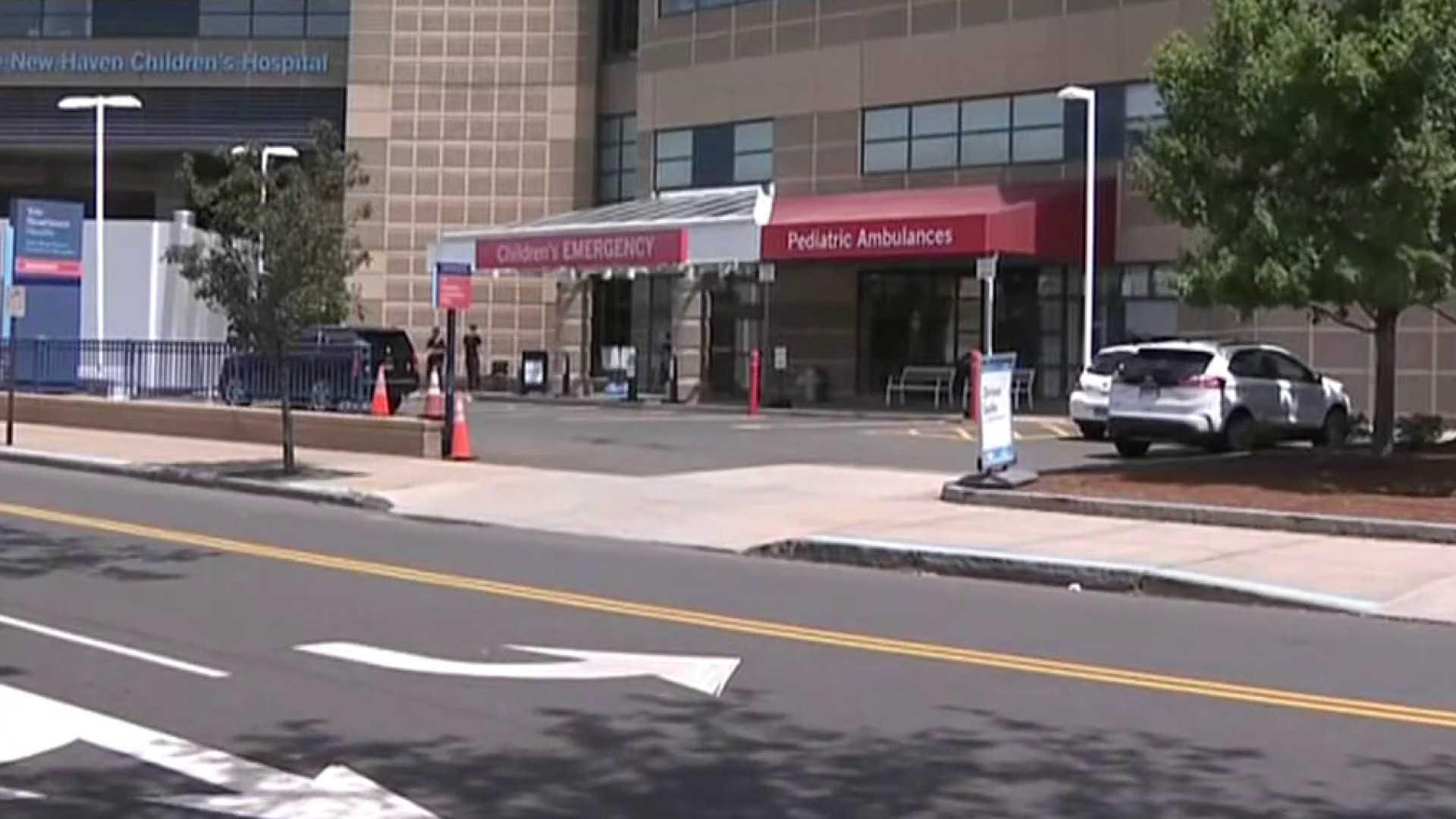How do you balance public safety and rehabilitating inmates found not guilty by reason of insanity?
It's a struggle state lawmakers are grappling with right now as they try to rebuild and redefine how our maximum security psychiatric hospital is run in Middletown.
"The idea that my offender could be free, even for a few hours, at the say of one voice is unacceptable," said Jill Kidik, a former Hartford police officer who was stabbed and nearly killed in 2018.
In 2021, a judge found the woman not guilty of stabbing Kidik multiple times due to her mental state.
Get Connecticut local news, weather forecasts and entertainment stories to your inbox. Sign up for NBC Connecticut newsletters.
So after reports of patient abuse, complaints about little or no help transitioning back into society, and safety concerns about the hospital facility itself, a task force was created in 2019 to find some solutions.
NBC Connecticut's Mike Hydeck spoke with Sen. Saud Anwar about the task force and what they're hoping to accomplish with Senate Bill 450.
Mike Hydeck: "So I read the report, a long list of things that are up for debate, one of which is the Psychiatric Security Review Board, that's the panel that decides if patients can leave, they do that under consideration. What does it look like could possibly change with that?"
Face the Facts
Face the Facts with NBC Connecticut goes beyond the headlines, asking newsmakers the tough questions, giving an in-depth analysis of the big stories.
Saud Anwar: "So the challenge we have with the PSRB, or the Psychiatric Security Review Board, is that they are the ones who determine if an individual patient with a psychiatric illness is safe to be able to go back into the society either for a short time or for longer time. And the report and the taskforce that had come up with the report were very clear they wanted this PSRB to be removed from the State of Connecticut. And the State of Connecticut is one of the last few, two or three states that actually have a PSRB at this time. And they were very clear, even though it was not an unanimous decision, it was an overwhelming majority's perspective. There is a little challenge and anxiety associated with taking such a big action. The fear is that on one hand, we want to make sure that the individuals with a psychiatric disorder are going to get the treatment that they need. And with the treatment, they should be able to get into some environment that is somewhat safer for them and for the public and the victims. But on the other hand, we do not want to push this issue too much, because there's a risk to the society and there's a risk to the victims in this situation, and that's where the push and pull is. And then we want to make sure that it's safe for the society. First and foremost, that is going to be the central part to it. But we also know that the PSRB model has failed a lot of patients in our state."
Mike Hydeck: "It's kind of tough to answer. You heard just leading into this the soundbite from former officer Jill Kidik in Hartford, she was stabbed in the neck by somebody who was in a psychiatric episode at the time. So you know that there's a lot of feelings behind this. Senate Bill 450 also calls for actually constructing a new facility. Is that possible? And is it necessary in your opinion?"
Saud Anwar: "Well, this was another area that the taskforce felt very strongly that the current facility is outdated, it is not a place for anybody to heal, it actually caused more harm than help. And again, this is based on the tragedy where we identified the abuse of patients, but also the workforce and their capacity to be able to perform the duties. So it will not happen right away. But what this bill is doing is it's asking DMHAS to start to look at the feasibility and then the planning of it because ultimately, sooner or later, we will need a new facility. This is going to take many years in the future for this to happen, but the path starts now. And this bill actually asked them to start that process in the journey right now."
Mike Hydeck: "So also in the report, addressing how to help patients transition back into society is important. And robust community services are what they're asking for. Money needs to be put aside for that, too?"
Saud Anwar: "Correct. We have a responsibility to make sure that this facility takes care and protects the society, but not every single person who's in that facility needs to be in the facility forever. And that's what I think is an area of opportunity where some of the other states have been able to transition in that direction and then we have to start to look at what we can do better."
Mike Hydeck: "Now it is our understanding through our reporting that certain steps have been taking place to minimize the possibility of future abuse since the Bill Shehadi case had gone through. What's your take on that? Where are we with how things are starting to get better as of today?"
Saud Anwar: "We heard a number of testimonies and then those testimonies confirmed that DMHAS has taken it upon themselves to have a very strong effort to undo what wrong had been done in the past and have a very controlled environment to actually improve the workforce capacity or and also make sure that each and every patient is protected. So we sense that the commissioner has been very clear that this is the direction they're moving into, and the patients who spoke also felt that way as well. So this is good. But this does not necessarily solve the long-term issues that are structural and require legislative actions. We will take those legislative actions. But it's good to know that DMHAS has taken it upon themselves to fix this when in collaboration with Department of Public Health."
Mike Hydeck: "We know the report is comprehensive. Senate Bill 450, where does it go from here?"
Saud Anwar: "I look at it as a journey. So this report has a number of different parts. 450 is the first part of the legislation that the public health committee is going to put forward to start the process of fixing some of the historical structural issues that have been haunting Whiting Forensic Hospital. But then we will have more bills in the future and we will have feedback loop because we are creating a task force to look at the PSRBs, but also looking at another advisory group that is going to oversee the entire Whiting functioning. So we will be in touch with how this is functioning. And then there are a number of other recommendations that we will put forward in next session."
Mike Hydeck: "How soon do you think actual real things will start to happen or is it really just going to be stuck in the legislative process for a while?"
Saud Anwar: "No, as you have you already alluded to the fact that DHMAS is already taking some actions to try and improve things. We feel that the structural as early as end of September. We expect after this bill passes, by September, we'll have a taskforce that is going to be ready to oversee the responsibilities and also the second group of the advisory board is going to make sure that they are looking at the broader functioning of Whiting. So I am hopeful that we are going to take care of our responsibilities collectively as a state because what had happened before just shattered our trust in our governance as a state. And everybody's on board to know that we can do better. We expect as a state of Connecticut to be amongst the best rather than amongst the worst. We are committed to make this happen, and that's what our legislation is going to start to do."
Chief Investigator Len Besthoff Shares His Insight
A series of reports on patient abuse at Whiting by NBC Connecticut Investigates helped not only to uncover what was going on there, but likely helped spur the task force created to fix the problem.
Chief Investigator Len Besthoff has been on the Whiting story for years.
Mike Hydeck: "Now, Len first remind us what was the tip in the beginning that patient abuse was going on there."
Len Besthoff: "Basically, it was that they were arresting some of the people that work there. And we had gotten wind a long time before that. The actual genesis of the discovery of this abuse was somebody was reviewing surveillance cameras. And they saw the abuse and they reported it, but then it was kept very quiet. And then we got word of the arrests. And once you have arrests, you got affidavits, it blows open."
Mike Hydeck: "And then we started looking at what really was going on there, so the task force just released their findings. They've been studying this, interviewing hundreds of people trying to figure out what's going on and what needs to be fixed. When you read it and heard about the taskforce report, did anything kind of catch you off guard or surprise you? Like they talked about building an entirely new facility - that's a big facility to begin with, right?"
Len Besthoff: "It's huge. But the issue is, it's old. It's 60s era, so, if not further back in parts of it. And so what they said is, 'yeah, we need a new building.' But the thing is, if you just get a new building, you're gonna have a new building with all the same problems."
Mike Hydeck: "And they need to worry about staffing as far as that's concerned, too. This is one of those things that we've been reporting on for a long time. From the hospital, some changes are already underway. And when the task force came out, when the arrests were made, from your reporting, are those changes making any difference?"
Len Besthoff: "I don't know if it's totally making a difference yet, Mike. I mean, certainly we've heard about reviews of restraints, things like that. More training for forensic treatment specialists and nurses in terms of recognizing potential abuse. But I also talked with workers there and what they say to me is that some of those same intractable problems are there. Part of it's because of the building, certainly. Part of it is employee bullying, which they're bullying each other. So it's not a far stretch to think that it could extend beyond that."



